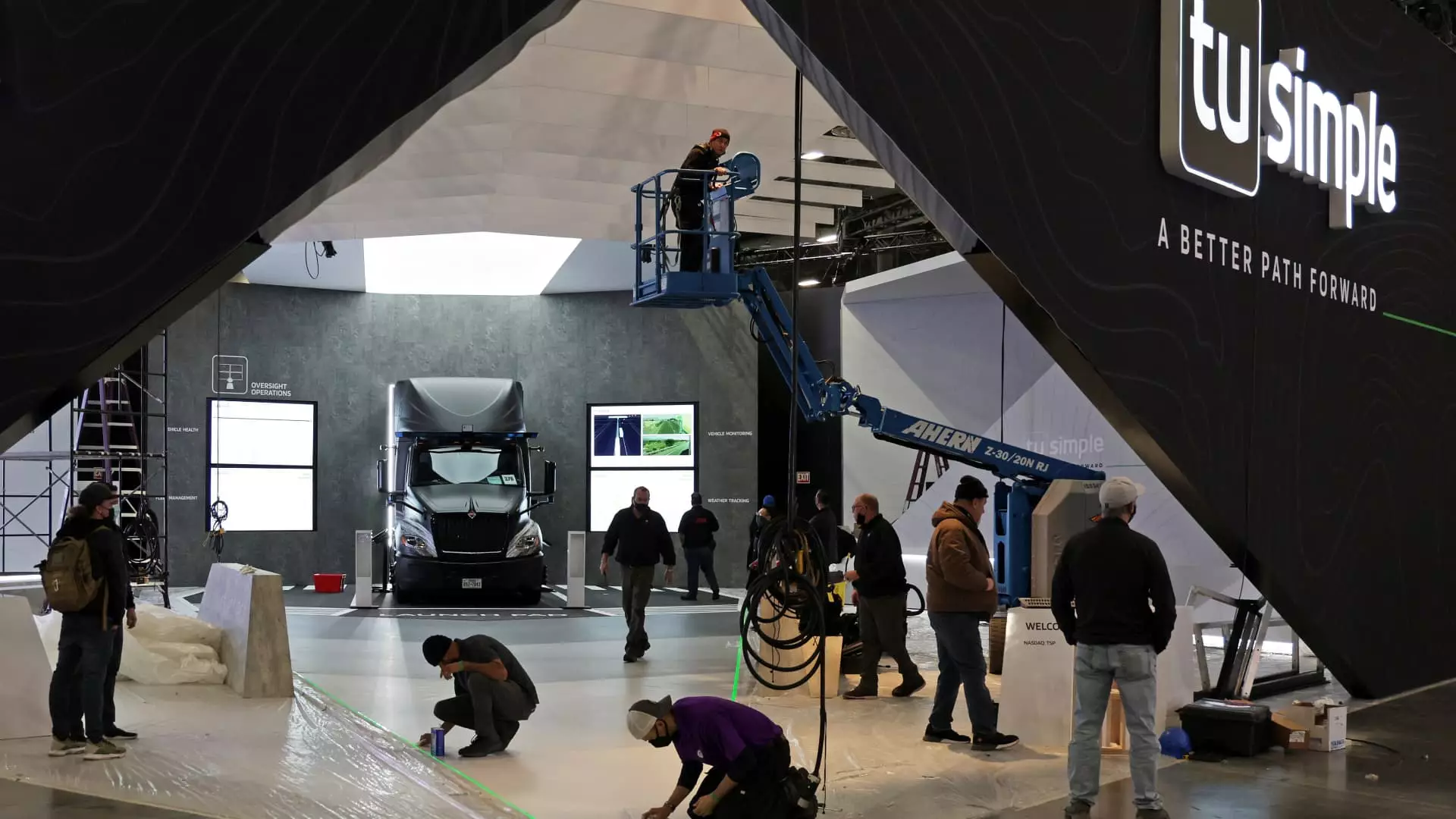In an unprecedented pivot that highlights the volatility within the autonomous vehicle sector, TuSimple, a company once heralded as a beacon of innovation in autonomous trucking, has rebranded itself as CreateAI. This transformation comes amidst a backdrop of difficulties not only for TuSimple but also for the industry at large, with notable setbacks from major players like General Motors and their Cruise robotaxi venture. This article delves into the implications of this strategic shift, examining why TuSimple took this route, what challenges it faces, and how it plans to carve out a niche in the competitive landscape of video games and animation.
TuSimple’s decision to pursue a path in video games and animation is not merely a response to fading prospects in autonomous trucking but appears to be a calculated maneuver to tap into the burgeoning generative AI market. The company’s newfound focus aligns with rising trends in gaming and animation, which have increasingly relied on AI to enhance production efficiency and creativity. CEO Cheng Lu, who regained his position after a previous ousting, believes this move is essential for the company’s rebound. He has outlined ambitious financial targets, projecting that CreateAI could break even by 2026, largely dependent on a video game inspired by Jin Yong’s iconic martial arts novels. This pivot reflects the adaptability required in today’s rapidly evolving technological landscape.
Transitioning from autonomous trucking to gaming is not devoid of challenges. TuSimple, now CreateAI, grapples with significant hurdles, including past safety concerns regarding its vehicles, a $189 million settlement from a securities fraud lawsuit, and the notorious delisting from Nasdaq. These issues not only impact corporate reputation but also create skepticism among potential investors and clients. The company’s reported losses of $500,000 in the first three quarters of 2023, alongside a staggering $164.4 million in R&D expenses, signal that the path toward profitability will demand agile management and significant capital infusion.
Moreover, there is the challenge of developing a new market presence while contending with the ramifications of U.S.-China relations. Current geopolitical tensions, exacerbated by U.S. restrictions on technology exports to Chinese companies, pose risks for CreateAI as it seeks to leverage its AI capabilities in game development.
Despite these setbacks, Cheng harbors ambitions for substantial growth, estimating that the full version of the game based on Jin Yong’s stories could bring in “several hundred million” dollars in 2027. This forecast underscores the potential of blending existing intellectual property with innovative technology, making it a compelling strategy as the demand for high-quality gaming experiences continues to rise. CreateAI plans to employ state-of-the-art AI tools, including an open-source visual model named Ruyi, to streamline game production and reduce costs. Cheng’s assertion that they could cut the expense of triple-A game production by an astounding 70% in five to six years raises questions regarding the practical implementation of such technology and the market’s response to AI-generated content.
The rebranding to CreateAI has prompted favorable reactions from shareholders, who appear supportive of the company’s transformation. Cheng highlighted this positive feedback as critical for the firm’s future strategy. Expanding the workforce from 300 to 500 employees indicates a commitment to scaling the business, but it also suggests the necessity of increased operational efficiency to manage these growing resources effectively. Additionally, partnerships, such as the one with Shanghai Three Body Animation, hint at collaborative opportunities that could amplify CreateAI’s market entry.
As CreateAI navigates its newfound identity while leveraging its AI roots, its success will largely depend on managing internal challenges and external perceptions. The company’s ability to innovate, adapt, and resonate with both the gaming community and traditional investors will be paramount for overcoming the complexities of this transition.
TuSimple’s metamorphosis into CreateAI serves as a case study in corporate agility amid adversity, exemplifying how companies can pivot and reinvent themselves in an unpredictable market landscape. The road ahead remains fraught with uncertainty, but the potential rewards are equally significant.


Leave a Reply